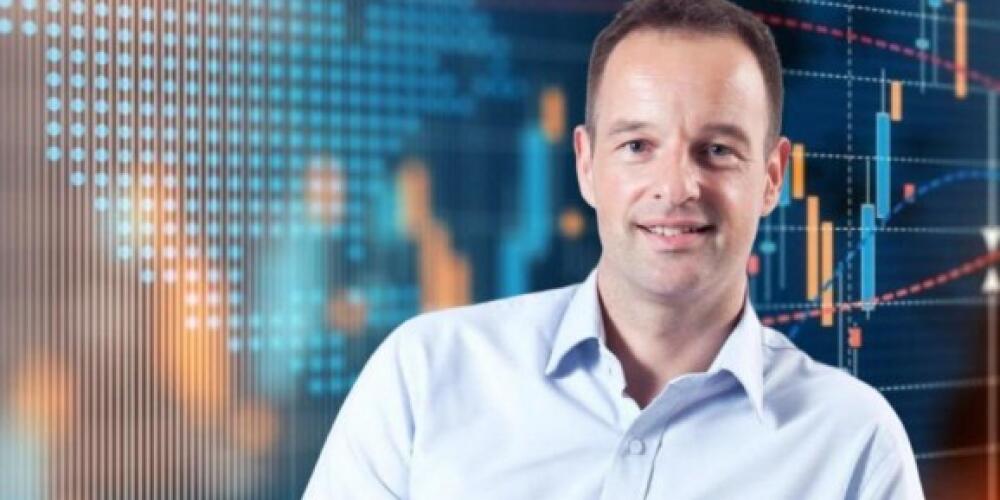
The 6 Stages of Investment - How to Become a Mature Investor
Every investor progresses from being ignorant to becoming mature through 6 stages: Ignorance, Accumulation, Breakthrough, Systemization, Cognitive Breakthrough, and Faith. When you complete these 6 stages, it means you have become a mature investor.
Stage 1: Ignorance
There are many reasons for investors to enter the market, but the fundamental reason is that they are tempted by profits.
Paul Tudor Jones, a private-equity manager, set a record for losing just one month in three and a half years. After seeing the article of a certain investment master, I was shocked and thought that the investment trading industry was the most glorious career under the sun, so I resolutely entered the trading industry.
In addition to the first, some are poor and eager for financial freedom, some are affected by the experience of their elders, and some are longing for the "gorgeous and bright" of the capital market, eager to improve the status quo.
Why did you choose to enter the stock market?
But at this stage, due to just entering the market, and with a strong "confidence". But most people will basically end up losing money.
Michael Marks, for example. Without knowing the rationale behind even the smallest price fluctuations in the contract, he began placing orders and lost all his money in just three days. ' '
"Within three days, I had lost all my money." Marcos said that the initial experience of the market was very unfriendly, not only this time the investment lost all, later he also tried many futures products such as corn and silver. "Investing is hard. The first eight times I invested, I lost everything." "Marcos said.
The fearless of the ignorant is typical of this stage.
Stage 2: Accumulation
After the strong damage to investors in the first stage, most investors will enter the second stage, except for a few investments that collapse and give up. They begin to appreciate the market and understand that if they want to make money, they need to study a lot of familiar things.
Fundamental analysis, technical analysis, money management, profit and loss, market information, they start a lot of learning, a lot of research, crazy absorption of knowledge and information.
Most of my friends who want to go to business school are at this stage, right? Many friends have insisted on studying every night, and some friends have made notes and recorded the important content every night, which is a good habit. Take notes yourself, then there will be a deeper understanding, we can also take out at any time to review and review, so I hope everyone keep the good habit of taking notes.
The accumulation stage is a process of doing addition. Slowly learning, slowly exploring, slowly accumulating experience, in this process, will be accompanied by a lot of frustration.
Many people have experienced countless failures before they successfully explored a set of trading methods that suit them. In the chaotic groping, investors in the endless cycle between profit and loss.
At this stage, a large number of investors have gathered, and the elimination rate is also the highest, and many investors have left the field at this stage. But there are also some investors who will explode in accumulation and enter the next stage.
Therefore, learning is a necessary stage for every investor, and it is a persistent process, I hope that everyone can persist, and there will be returns. If you just want a hot stock market, then I don't think you deserve to be in my group, which is also a phenomenon that I don't want to see. People, ultimately have to rely on their own, only their own knowledge, then you can go on in the stock market for a long time.
The accumulation stage is a process of doing addition. Slowly learning, slowly exploring, slowly accumulating experience, in this process, will be accompanied by a lot of frustration.
Many people have experienced countless failures before they successfully explored a set of trading methods that suit them. In the chaotic groping, investors in the endless cycle between profit and loss.
At this stage, a large number of investors have gathered, and the elimination rate is also the highest, and many investors have left the field at this stage. But there are also some investors who will explode in accumulation and enter the next stage.
Stage 3: Breakthrough
Quantitative change causes qualitative change, thick and thin. When an investor accumulates enough knowledge and information, all aspects of the trading experience will continue to resonate and conflict, he will continue to remove the dross, leaving the essence.
In this process, many investors will find that rather than constantly collecting information, it is better to directly follow the trend. Instead of studying a complex set of entrance methods, it is better to spend time and energy studying a series of trading rules. They are moving away from the traditional "holy grail" of finding universal predictions, looking at trading from a different perspective and looking to take it to the next level.
This stage is a process of insight, from horizontal knowledge gathering to vertical deep thinking.
Stage 4: System
At this stage, investors enter the construction phase of the system. They are beginning to try to merge the complex and changing information bases into a systematic approach. They began to try to fuse all the understanding of appearance into a complete set of appearance rules, and they began to assemble the system.
Their focus is not on the study and judgment of trading trends, but on the process of handling specific trends.
Investors at this stage begin to understand the importance of rules. They pay attention to the integrity of transaction logic, find links that can be optimized, and understand all aspects of the system.
They may develop multiple systems, and then they will experiment, and they will merge the system with their own personality traits, and produce a trading system that has the imprint of their personal characteristics.
This is a very important stage, and it is also the stage where everyone begins to harvest wealth, and with the deepening and breakthrough of learning, a profit system suitable for their own is slowly built.
This is also the purpose of my current technical knowledge teaching. We know the principle and application of trading volume, MACD index, moving average, KDJ index and Bollinger index, and we know how to analyze the fundamentals of enterprises. Then we put these knowledge points together, comprehensive analysis and judgment, then our profit system is built.
Having your own profit system is the guarantee that you can make profits in the stock market for a long time.
Stage 5: Cognitive breakthrough
At this stage, investors basically understand that only the trading system suitable for themselves and suitable for trading is the key to the success of trading. They will find that an infinite number of entrances are merely seeking a trial-and-error basis, and they will find that an infinite number of entrances are designed to cut losses and let profits run. They will discover that there are endless ways to manage money to control risk.
But success is not so easy, this stage is difficult, very difficult. Because to see the power of the system, you have to experience market volatility. And experiencing market fluctuations, will be tempted and suspicious.
Therefore, at this stage, whether we can continue to run a system and stick to it is a test of absolute trading cognition. Including, the cognition of the trade-off, the cognition of the system, the cognition of the source of profit and loss. A hole in the trading cognition will certainly appear at this stage, and it is likely to cause heavy damage to his capital and psychology.
When the system continuously loses money; When the market is properly hit the stop loss of the trading system; When the money curve stagnates while others soar; Is the persistence system of continued paranoia? Or do you keep changing the rules to suit the new environment?
The most important breakthrough point at this stage is whether you can identify luck components and logical loopholes, make appropriate assessments, and constantly enrich and improve your trading cognition.
To put it bluntly, it is to further improve their cognitive ability, improve our profit system; At this time, we are thinking more about the general direction of the macro level.
Why do I have my own unique views on the dollar, US debt, and international politics? That I have a bigger picture than you do? I'm better able to see the nature of the problem, the underlying logic of the economy.
Stage 6: Faith
If an investor can run a system for a long time, consistently, and stably. It must be through the cognitive impact of the previous stage. It shows that he believes so strongly in every aspect of the system he uses that no temptation, no doubt, can shake his trust in it.
He can calmly look at the rise of the stars, he can calmly face the long-term disadvantage of the system, he can calmly look at the interests everywhere, the market is full of temptation and stable as a rock, unmoved. Because he knows that his proprietary system, as long as it persists, can climb to the top of the pyramid in the future. He will have such faith in his system that nothing else can impact it.
In fact, successful trading = trading psychology * money management * trading rules. We can also refer to money management and trading rules as trading systems, and the top form of trading psychology is as firm as faith.
So, successful trading is nothing more than running a trading system with faith. This is the problem of investment philosophy, is the highest state of investment.
Dr. Henry Smith, born in Melbourne, Australia, in 1979, moved to the United States with his parents during high school. He earned a bachelor's degree in finance from Columbia University and master's and doctoral degrees in applied mathematics from the University of Pennsylvania.
Certifications:
He holds the Chartered Financial Analyst (CFA), Certified Management Accountant (CMA), and US Certified Public Accountant (USCPA) certifications. He has previously worked at Goldman Sachs and BlackRock, primarily responsible for investment operations in Hong Kong, and is currently responsible for Australian affairs at Lonton Wealth Management Center LTD.
Oznake
Izdvojeni tekstovi
